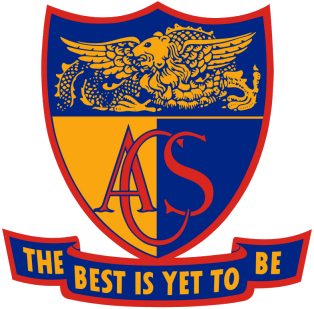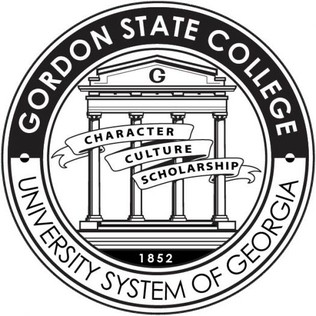In Singapore, a co-curricular activity (CCA), is a non-academic activity that all students must undertake as part of their education. Introduced by the Ministry of Education (MOE), CCAs are strongly encouraged at the primary and post-secondary level but compulsory at secondary level. Students can choose from 4 categories: clubs and societies, physical sports, uniformed groups, and visual and performing arts. They may also start their own activities with the school’s approval. Anyone offering enrichment activities to schools must be registered with the MOE.

The National Cadet Corps (NCC) is the youth wing of the Indian Armed Forces with its headquarters in New Delhi, India. It is open to school and college students on voluntary basis as a Tri-Services Organisation, comprising the Army, the Navy and the Air Force. Cadets are given basic military training in small arms and drill. Officers and cadets have no liability for active military service once they complete their course.
The Sainik Schools are a system of public schools in India established and managed by the Sainik Schools Society under Ministry of Defence (MoD). They were conceived in 1961 by V. K. Krishna Menon, the then Defence Minister of India, to rectify the regional and class imbalance amongst the officer cadre of the Indian Military. The primary objective of the Sainik Schools is to prepare students academically, mentally and physically for entry into the National Defence Academy (NDA) and Indian Naval Academy (INA). Sainik Schools, along with 1 RIMC and 5 RMS, contribute 25% to 30% officer cadets to NDA and INA. As of 2021, there were 33 Sainik Schools, and MoD will establish 100 more boarding Sainik Schools in public–private partnership (PPP) mode.

Anglo-Chinese School (Independent) is an independent Methodist secondary school in Dover, Singapore. Founded in 1886 by Reverend William Fitzjames Oldham, it was recognised as an International Baccalaureate World School in 2005, and has since consistently ranked among the top three schools worldwide that offer the IB Diploma Programme.

Gordon State College is a public college in Barnesville, Georgia. A member of the University System of Georgia (USG), Gordon State's spring 2023 enrollment was 2,846 students. The college campus incorporates 235 acres (95 ha), which includes academic buildings, residence halls, the student activity and recreation center, an indoor swimming facility, ropes course, walking trail, outdoor basketball courts, tennis courts, athletic fields, and racquetball courts.
Bhavan's Vidya Mandir, Girinagar is a Senior Secondary School affiliated to the Central Board of Secondary Education (CBSE), New Delhi. It is a part of the Bharatiya Vidya Bhavan, a group of educational institutions and is situated in Girinagar, Ernakulam (Cochin), Kerala, India.

The Sainik School, Balachadi, in Jamnagar, Gujarat, is one of the leading Sainik Schools in the chain of Sainik Schools. It is one of the outstanding boarding schools for public education in Gujarat. It was established in July 1961 by the then Honorable Minister of Home Affairs, Shri Lal Bahadur Shastri. It is an elite English medium, fully residential boarding school for boys and girls, providing premium public education, with a military bias, up to 10+2 stage, as per the Central Board of Secondary Education.
The National Cadet Corps (NCC) is a youth organisation in Sri Lanka, sponsored by the Ministry of Defence, which operates in schools, and normally includes Army, Navy and Air Force sections. The corp is open for secondary school students on voluntary basis and its officers are government teachers and educational administrators, who serve as instructors. The Cadets are given basic military training in small arms and parades, as well as leadership training.

Sainik School Rewa is one of the 33 Sainik Schools of India. It is a purely residential school. The medium of instruction is English. Established by Government of India on 20 July 1962 at the sprawling estate known as Yuvraj Bhawan which belonged to Maharaja Martand Singh Judeo, Yuvraj of former Princely state of Rewa, the school prepares boys to join the indian armed forces. The school has contributed about 950 officers. It is affiliated to Central Board of Secondary Education and is a member of Indian Public Schools Conference (IPSC).

Rashtriya Military School, Dholpur is one of five military schools of India. It is situated in Dholpur in Rajasthan and was established in 1962 by a former Defence Minister, Krishnan Menon, to facilitate education of the children of the Defense personnel as well as the civilians. Military Schools in India were previously known as King George Royal Indian Military College.

Sainik School at Korukonda informally began on 10 September 1961. The school was formally founded by its first principal, Commander Trevor De Almeida, on 18 January 1962, when the first batch of 205 students had joined.

Cornway College is a private, co-educational, day and boarding school in Mount Hampden, Mashonaland West, Zimbabwe, which is 16.5 kilometres from the Harare Central Business District. Cornway College was established in 2006 at its present location. It has a preparatory school and a high school. The language of instruction is English.

Sainik School Tilaiya, Jharkhand, India, is a public boarding school established and managed by the Sainik Schools Society under Ministry of Defence. It is a preparatory school for entry into the defence services — National Defence Academy (NDA), Khadakwasla, Pune and Indian Naval Academy (INA), Ezhimala, Kerala.

The century old Carmel Higher Secondary School is a private Catholic secondary school for boys, located at Carmel Nagar, Ramanputhoor, in Nagercoil, in the Kanyakumari District, in the state of Tamil Nadu, India.

Sainik School Sujanpur Tihra is a Sainik School in the town of Tira Sujanpur, Hamirpur district in the state of Himachal Pradesh, India.

The Loyola Public School is a private Catholic primary and secondary school located in the village of Nallapadu outside Guntur in the state of Andhra Pradesh, India. Established by the Jesuits in 1964, the school follows the ICSE curriculum till class 10 and the ISC for class 11 and 12. The school's motto is Natus Ad Majora.

The National Cadet Corps (NCC) is a military cadet corps youth organisation supported by the Ministry of Defence and the Ministry of Education.
Pulluvazhi is a small village in Rayamangalam Grama punchyathu in the Ernakulam district of Kerala state, India. It is close to the towns Perumbavoor, Muvattupuzha and Kothamangalam.
D.A.V. (Boys) Senior Secondary School, Mogappair is an all boys school that was established in the year 1989 as a part of D.A.V Group of Schools, Chennai. The school is a sister concern of D.A.V. Boys Senior Secondary School, Gopalapuram. The primary medium of instruction for all non-language subjects is English. The school is managed by the Tamil Nadu Arya Samaj Educational Society, Chennai, a limb of Arya Samaj (Central); Chennai, under the Societies Act XXI of 1860, Sl. No.101 of 1974. The school educates students from LKG to class XII.

Shree Sarasswathi Vidhyaah Mandheer (SSVM) Institutions are groups of residential co-educational schools based in India. It offers classes from Kindergarten to grade 12 based on providing a range of curriculums in Central Board of Secondary Education, Council for the Indian School Certificate Examinations, Cambridge International, International Baccalaureate, State board and National Institute of Open Schooling across its eight campuses in Coimbatore, Mettupalayam and Uppilipalayam. It was established in 1998 as a primary school by educationalist Dr Manimekalai Mohan.














